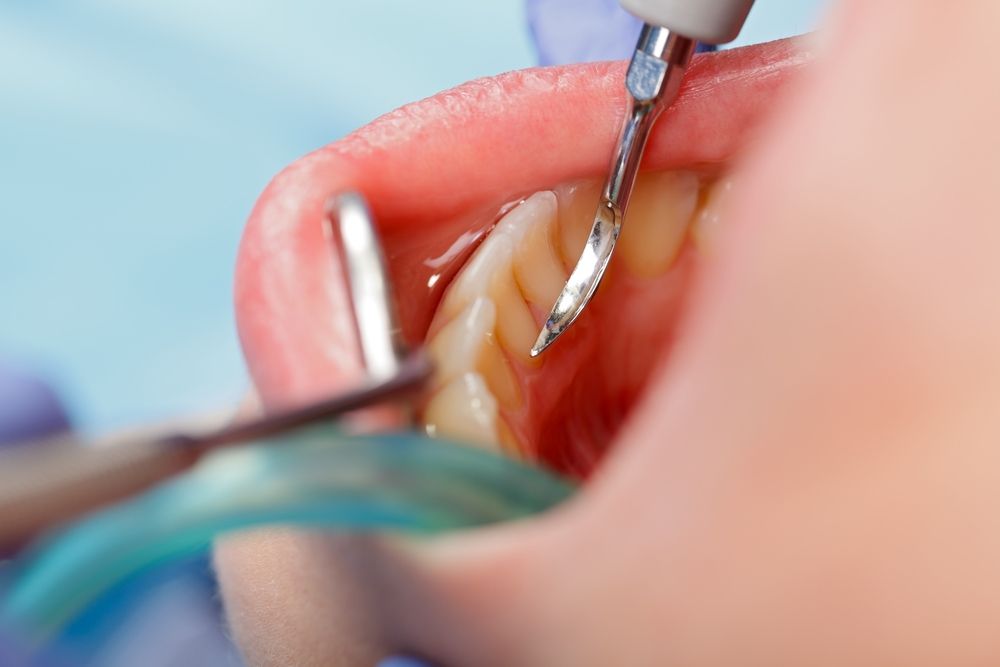Scaling and Root Planing
Dedicated brushing and flossing are not guaranteed to prevent periodontal disease. Dr. Kellyn Hodges and her team offer scaling and root planing as a way to treat the early stages of the disease at her offices in the greater Philadelphia, PA, area. This procedure treats infection and prevents reinfection by removing plaque and tartar from below the gumline.
In-Depth Cleaning
Because this procedure is essentially a more in-depth version of a regular cleaning at the dentist, it is also known as a deep cleaning. Scaling removes the hard deposits of plaque or tartar below the gumline that trigger inflammation. Root planing smooths the tooth roots to make it more difficult for plaque to collect. These treatments are typically recommended in the early stages of periodontitis.

Periodontal disease is a common condition. If any food is caught in the teeth or gums, the bacteria that naturally occur in our mouths will feed on it, resulting in plaque, which can inflame gum tissue. If the gums pull back from the teeth, the bacteria can then spread below the gum line, affecting the tooth root and surrounding tissue. Left untreated, this can lead to tooth loss and jawbone degeneration.
While biannual cleanings are usually enough to remove any plaque, they may not be enough to prevent an infection. In this case, scaling and root planing may be recommended.
What to Expect
Depending on the severity of the condition, Dr. Hodges may recommend either completing the treatment in a single appointment or phasing it over several visits. In most cases, each appointment lasts about an hour.
To maintain your comfort, the doctor and her team will administer a local anesthetic before starting. During the scaling portion of the procedure, the doctor will carefully remove plaque and tartar above and below the gum line in order to eliminate the source of infection. Once the teeth and gums are free of plaque, they can proceed to root planing. By smoothing the tooth roots, they can reduce the risk of reinfection.
Although you will experience some tenderness after your appointment, you can typically return to your normal routine immediately afterward. Any lingering numbness from the anesthetic usually fades within a few hours. In some cases, the doctor may also prescribe an antibiotic pill or mouthwash to further prevent reinfection. If successful, your gums will return to a healthy, firm pink within a few weeks of your visit.
The Importance of Periodontal Health
Gum disease is reversible in the early stages, but it becomes chronic in later stages. Research indicates that as the condition advances, it can increase your risk of developing heart disease and other serious health issues. Although chronic gum disease can be controlled, we aim to help patients avoid reaching this stage of the disease in the first place. In addition to regular cleanings and any necessary scaling and planing, our team will always provide advice regarding your brushing and flossing technique in order to help you maintain outstanding oral health.
Schedule a Consultation
If you are experiencing symptoms of gum disease, due for a checkup, or simply need to establish ongoing care with a dentist, we are here to help you. Reach out online or call our offices in Bala Cynwyd (610-617-0700), Montgomeryville (215-412-9810), or Bensalem (215-245-5100) to schedule an appointment with Dr. Hodges and evaluate your case.


